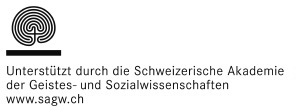Special Issue | Planetary Health
Integrating perspectives from health and environmental communication
Guest Editors: Marijn Meijers & Eline Smit (University of Amsterdam), & Ann DeSmet (Université Libre de Bruxelles/University of Antwerp)
Both population health and individual health are highly dependent on planetary health: without a healthy planet, a healthy human population will not exist. The health of our planet is deteriorating, however, and environmental problems, such as climate change, deforestation, and pollution, are serious threats to our environment and species worldwide (Rockström et al., 2009). It is therefore of utmost importance to develop effective planetary health communication to stimulate (behaviour) change for a healthier planet. As environmental problems are most often a direct or indirect result of human behaviour, changing individual behaviour is essential. However, for individual behaviour change to be sustainable in the long run and in a variety of contexts, (behavioural) change should also happen at the meso and macro level. In this special issue on Planetary Health Communication, we therefore focus on integrating insights from health and environmental communication with the ultimate goal to increase planetary, population, and individual health by targeting change at the micro, meso, and macro level.
As such, this special issue calls for papers that report on studies investigating planetary health communication directed at or coming from a) the individual person (i.e., taking a micro level perspective), b) organisations or intermediaries (i.e., meso level), and c) governments, the general public, or global organisations (i.e., macro level). Of course, we also welcome submissions that combine communication across levels and/or analyse interactions between levels. Thus, submissions can address, but are not limited to, the following communication-related aims, questions, and concepts:
Micro level: Individuals
- Communication for behaviour that affects both individual and planetary health (e.g., physical activity, meat consumption)
- Identifying common/distinct predictors of healthy/environmentally friendly behavior that can be targeted by communication
- Distinguishing differential effectiveness of individual communication that takes a health or environmental perspective
- Communication aimed at consumption behaviour that may affect individual (e.g., plant-based food) and/or population health (e.g., plastic packaging)
Meso level: Organisations, the social environment, or intermediaries
- Communication aimed to make the healthcare or other sectors greener (e.g., aimed at the environmentally friendly behaviour of healthcare professionals)
- Communication focused on creating a social environment that facilitates healthy/ environmentally friendly behavior (e.g., aimed at reducing social pressure or creating healthy/green social norms)
- Communication aimed at policy makers in healthcare or other institutions (e.g., with the goal of changing organisational policies for the healthier/greener)
- Identifying leverage points for change in care or other organisational pathways that may affect individual (e.g., replacing polluting medication with a more environmentally friendly alternative) and/or population health (e.g., recycling of medical masks)
Macro level: Governments, the general public, or global organisations
- Communication about planetary health in the media, for example, newspapers, TV shows, and blogs.
- Public campaigns aimed at the general public (e.g., to increase the use of public transport or promote a plant-based diet)
- Communcation towards and about global organisations, policy makers, and (local and national) governments
Submission Format
We welcome submissions that fit any of the EJHC formats: original research papers, theoretical papers, methodological papers, review articles, and brief research reports. For further information on the article types, please see http://www.ejhc.org/about/submissions. If you have any questions regarding the fit of your paper for this special issue, please contact the guest editors.
Manuscripts should be prepared in accordance with the EJHC author guidelines and be submitted via the journal website.
Deadline for submission of full papers is 02 October 2023.
Review Process
All articles will undergo a rigorous peer review process. Once the paper has been assessed as appropriate by the editorial management team (with regard to form, content, and quality), it will be peer-reviewed by at least two reviewers in a double-blind review process, meaning that reviewers are not disclosed to authors, and authors are not disclosed to reviewers. To ensure short publication processes, EJHC releases articles online on a rolling basis, expected to start in April 2024.
Contact Guest Editors
Marijn Meijers, University of Amsterdam: M.H.C.Meijers@uva.nl
Eline Smit, University of Amsterdam: E.S.Smit@uva.nl
Ann DeSmet, Université Libre de Bruxelles/University of Antwerp: ann.desmet@ulb.be
References
Rockström, J., Steffen, W., Noone, K., Persson, Å., Chapin III, F. S., Lambin, E., ... & Foley, J. (2009). Planetary boundaries: exploring the safe operating space for humanity. Ecology and society, 14(2).








